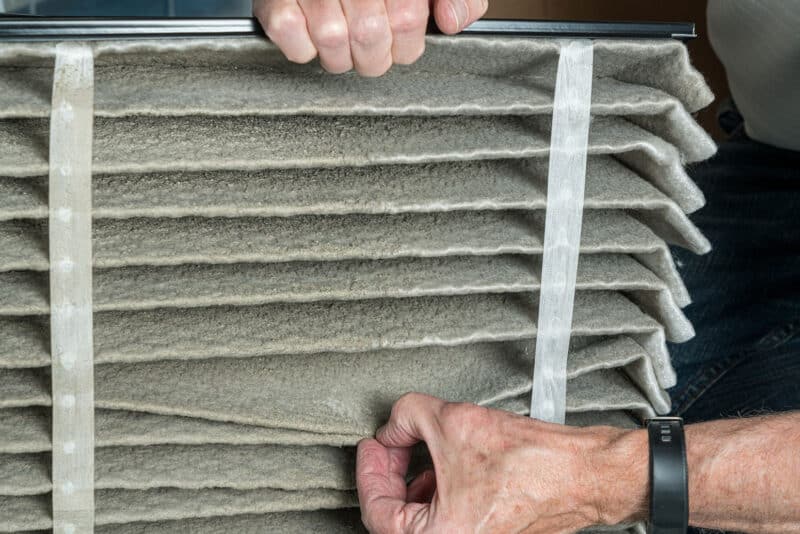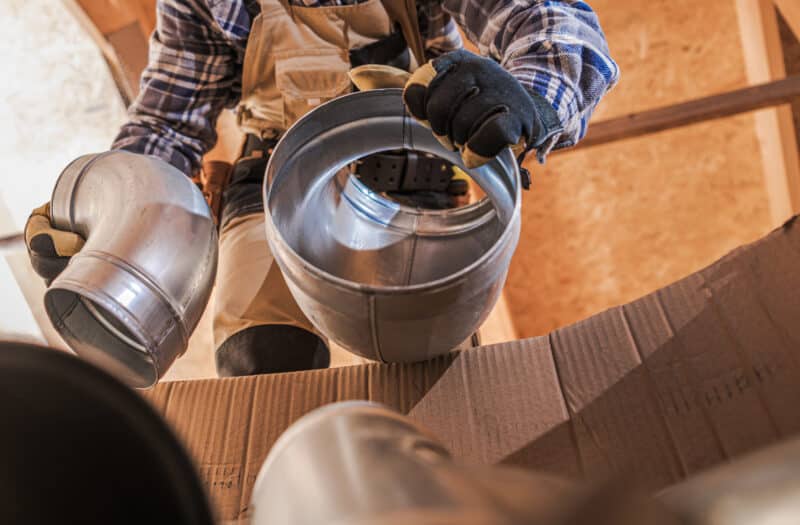Ways to Achieve a More Energy Efficient HVAC
An HVAC System is an essential part of any home or building. The HVAC system is made to control the climate inside of your home, regardless of the weather conditions outside of your home. You want to have an energy efficient system, because it will help save you money in the long run, as well as help the planet, by conserving energy.
What Makes an HVAC System Energy Efficient?
When it comes to shopping for a car, one of the things we take into consideration is the gas mileage. It is no different for HVAC systems, which can take up a large percentage of energy consumption in your home.
Different factors will make an HVAC system energy efficient. From the type of system, you have to how it is maintained can all affect the energy efficiency. Because of this, even small changes to an existing system can help make it more energy-efficient.
The Science Behind Energy Efficiency in HVAC Systems
When it comes to finding the most energy-efficient HVAC system, it helps to have an understanding of the science behind them. Here are some of the different scientific ratings most energy-efficient HVAC systems will be rated with:
Season Energy Efficiency Ratio (SEER): SEER is the measured ratio of cooling output, which is measured in British Thermal Units (BTU) and then divided by usage, measured in kilowatt-hours. For the SEER rating, the higher the number, the more energy-efficient HVAC ducting you have. The SEER HVAC rating uses seasonal cooling conditions rather than lab-created conditions.
Tips to Make Your HVAC Unit Energy Efficient
1. Retrofit an Old System
This is a great option for systems that are still functioning well overall and have been properly maintained through the years. You can replace the system’s compressor, add condenser fan controls, and add air side economizers ask one of our technicians for more information.
2. Invest in a Whole New System
Alternatively, if you plan on staying in the same home for a long time, you may want to consider installing a whole new energy-efficient system with energy-efficient HVAC ducting. This is especially true if you have an old system. Check for units with high SEER ratings and Energy Star-Rated models that adhere to strict energy efficiency guidelines. We have great financing options. If you were to subtract the energy bill savings from your bill, then add in your monthly financed payment on a NEW system, there’s a chance you could STILL be saving money.
3. Well Insulated Home
Be sure your home is well insulated. If there are cracks beneath doors or windows or there’s not enough insulation in the windows or walls, all of your efforts to be energy efficient could leak in or out.
4. Be sure your ducts are airtight.
The same as properly insulating your home, your ducts also need to be properly sealed. If they are not, you may be spending a lot of money heating your attic instead of your home. One of our technicians can check this at your next visit.
5. Install Smart Programmable Controls and Thermostats
Smart technology is helping us in so many avenues of our life, including with our HVAC unit. These systems allow temperatures to be automated, so they can change depending on the time of day, and take some of the workload off of the HVAC system itself. A simple change of temperature during the day when nobody is home can drastically decrease the amount you spend on your utility bills.
6. Preserve the System Airflow
Keeping your ducts cleaned, will keep air moving properly through your home. Dust, dirt, and debris can all clog a system and force it to work harder to push out hot and cold air.
Also, you want to ensure that your furniture and curtains are not blocking any of the air vents or ducts, which could prevent air from flowing smoothly and efficiently.
7. Make Use of Curtains and Blinds
During the summer months, keeping curtains closed during the day will help block out some of the summer heat, allowing your home to maintain a cooler temperature. Alternatively, opening the curtains during winter will allow even the smallest amount of sunlight to come through and naturally warm your home, so your HVAC system works less.
8. Perform Regular Maintenance
It may seem like common sense, but people surprisingly overlook the importance of performing regular maintenance on their unit. Just like a car needs the oil and spark plugs changed, an HVAC system needs routine maintenance. By having regular maintenance checks, you can avoid being caught by surprise with a system failure and costly repairs.
9. Change Air Filters Regularly
As the HVAC system is used, the air filter inside of it gets clogged with dirt, dust, and other types of debris. The dirtier the filter gets, the harder the system is forced to work to do its job, making it use more energy and costing you more on your utility bill. By changing the filter regularly (We recommend once a month, or more often if the temperature is at a peek low or high,) you can ensure that your HVAC system always has a clean air filter, so it can function at its best.
10. Watch When You Run the Dryer and Oven
When a dryer is used, it draws warm air into the home while an oven simply creates additional heat. So, when these appliances are used during the hottest point of the day in summer, they increase the home’s temperatures. This, in turn, forces your HVAC system to work harder in cooling your home, costing you more money in the long run.
11. Take Advantage of Fans
Whether it is a ceiling fan or a floor fan, fans are instrumental in your HVAC energy efficiency. No matter if your system is set to cool or heating, fans will help to circulate the air throughout the house better. That way, all areas of the house are getting evenly distributed hot and cold air, so the system does not use as much energy.
12. Trim Plants and Clean Gutters
Another thing you can do to create good conditions for more energy efficiency is to ensure any plants nearby are trimmed and the gutters are cleaned out regularly. These things harbor moisture, and if moisture gets onto or into the HVAC system, it can cause it not to function properly. So, keeping it free from fallen foliage and moisture is vital.
13. Have the Right Size System
When it comes to the most energy-efficient residential HVAC system, size really does matter. Having a system that is too small for your home can force the system to work harder to heat and cool your space. Alternatively, a system that is too big maybe overkill and put out too much energy. This is one of the reasons we will NEVER give you an estimate on a new system without measuring the heated and cooled area of your home.
These days there is an emphasis on energy efficiency in every aspect of life. Having the most energy-efficient HVAC system is one of the best things you can do for your home and your environment. You do not have to invest in a whole new system to increase energy efficiency; just check the tips in this article for some money-saving adjustments that can make a huge difference in your utility bills and overall HVAC energy consumption.






